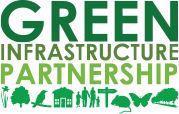A call for nature based neighbourhoods in England
22nd August 2025
Project update, August 2025
This year, the Green Infrastructure Partnership is working with the Wates Family Enterprise Trust and the social research agency, More in Common, to explore what different types of voters think about urban nature.
Work by More in Common to date demonstrates that the public see parks and green spaces as priority issues and highly value them in their areas. However, this message has failed to reach politicians, who often position nature as a ‘blocker’ to growth or only of interest to a minority of people.
The research will explore this in more detail and further test public opinion on nature, parks and green spaces. The results should be useful for demonstrating that if governments want votes, they should back nature, not neglect it.
The research is purposefully focused on urban green space, for two reasons. Firstly, many urban areas lack local nature. And secondly, because many of the new tools for supporting the delivery of green infrastructure (such as the Land Use Framework, the Nature Restoration Fund and local nature recovery strategies) are supposed to cover the whole country but are unclear or weak in terms of their application to urban areas.
Policy needs change to support urban greening
This research follows a policy event hosted by the Green Infrastructure Partnership in late 2024. We invited a broad range of stakeholders to share thoughts on why, despite national aspirations to improve access to nature, progress remains slow. The event highlighted a range of issues including:
- There is no single department responsible for urban parks and green spaces. This means that there is a lack of oversight, and policy to promote nature in urban areas is fragmented.
- While there are ambitious national targets for environmental improvement, it is unclear how the many local community led urban greening projects around the country can, or should, contribute to these.
- There is also a concerning narrative from government that frames nature as a ‘blocker’ to growth, rather than something that must be embedded in all plans and developments.
- Many communities want to green their neighbourhoods, but can’t get support. There is also an unfair distribution of existing green spaces – communities with the worst health tend to have the worst access to good green spaces.
The GIP will continue to work with partners, drawing on the research and findings from our policy workshops, to develop a set of clear policy asks from government to promote nature in the heart of neighbourhoods across England.
To find out more email GIP-UK@tcpa.org.uk
